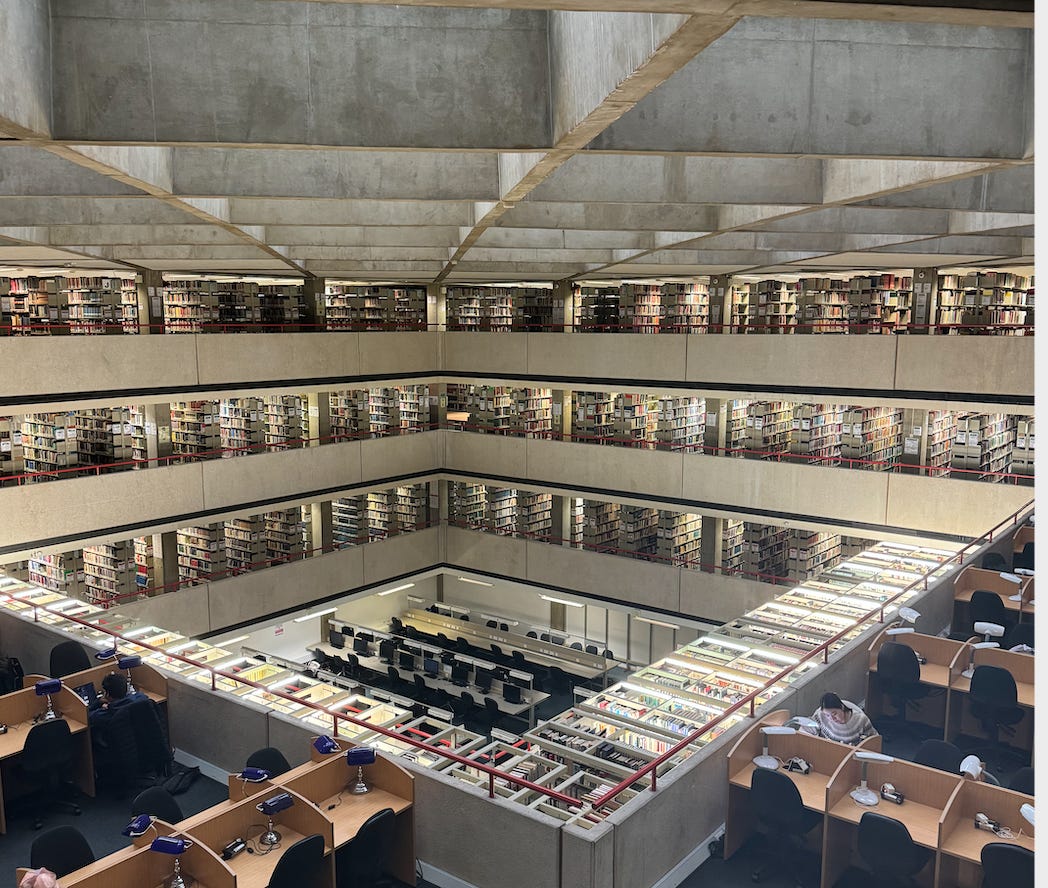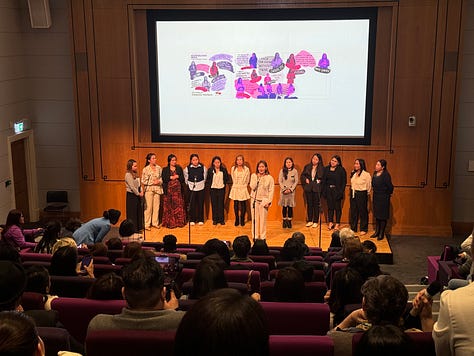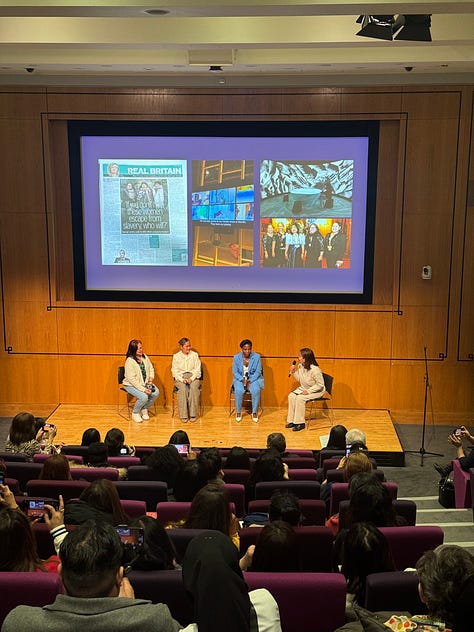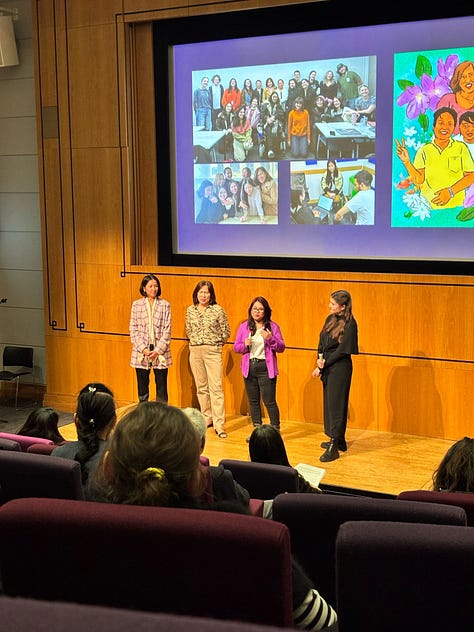
Yesterday, I gave a talk online for the Education University of Hong Kong called ‘Do I make myself clear? How to write for a general audience’. The title sounds a little stern, I realise. It’s a riff on Harry Evans’ book Do I Make Myself Clear? Why Writing Well Matters, which in itself is an extension of George Orwell’s 1946 essay Politics and the English Language.
Both are entertaining and witty reads, although I don’t see either of them as fully prescriptive guides for the only way to ‘write well’. In the talk, I wanted to convey that writing well also comes from the strength of the idea, and from the unique, innate point of view from which it is written. It was helpful to have the words of some of my favourite writers, including Viet Thanh Nguyen, Salman Rushdie, Katie Kitamura and Susan Sontag to illustrate this point.
For nearly a decade, the majority of the writing that I have done has been for public consumption. The last seven months have been different. Most of the thousands of words I have written have not been shared publicly, but instead have been written for university assignments as part of my MA in South East Asian Studies at SOAS. Only myself, my tutor and a moderator have read them.
I’ve been thinking about how this has shifted my approach to writing. In a journalistic context, my instinct is to always think about the audience I am writing for. And while I certainly enjoy the process of reporting and constructing an article, I also find myself preoccupied and concerned with the end product — how it will look, be shared, be received, be engaged with, what the impact might potentially be.
“In a neoliberal technological age in which we are often obsessed with a product rather than the process by which it was made, it is hardly surprising that the true value of writing is being overlooked. Students are simply taking their cues from a world losing touch with the irreplaceable value of human creativity and critical thinking.” I cannot stop thinking about this line from a letter by Dr Ben Wilkinson to the Guardian in response to a survey showing that 92% of students are using AI, and 88% are using it for their assessments.
I’ll certainly explore this in a future edition from a more technological / teaching point of view. But from my perspective as a student, I’ve been leaning into enjoying the process of writing in private much more. Even if I do feel a little self-conscious about my academic writing being not ‘academic’ enough, I’ve still stuck to my inclination to want to tell an engaging story rather than trying to sound ‘intellectual’.
The process has taught me that the boundaries and borders between academic, journalistic and creative non-fiction categories are more porous than I might have previously thought. Instead of feeling the need to translate writing between these worlds, I challenge myself to try to write in a way that is accessible across them.
Over the last two terms, I have written about:
The representation of migrant domestic workers in Hong Kong
On-screen depictions of Vietnamese attitudes towards love and marriage
The city as a site of sexual exploitation and sexual exploration in South East Asian cinema
Queer desire, diasporic displacement, and dual identities in postcolonial novels
Romanticisation and remembrance of courtesans in early modern China
Representations of the Indonesian revolution in contemporary literature
Diasporic writers’ exploration of the mother tongue to convey the trauma of war
I had no deep familiarity with any of these topics before starting this degree, apart from the assignment on migrant domestic workers in Hong Kong, which focused on the 2016 film Sunday Beauty Queen. To enquire and research more about them, to pursue my curiousities or see things from new perspectives is not an indulgence or a mere frivolity. It is work as well as pleasure.
The process has also required me to accept my limits. I have not pitched a journalistic story recently — I’ve physically not had the time, headspace or energy due to the demands of the academic term. There is a certain uncomfortability I feel in sharing that (and an irony in the fact that I’ve taught pitching workshops during that time). But I’ve had to let go a little, to relinquish the idea that I could have done everything. Only now am I starting to be able to breathe a little more, and to find space for that creativity again (as well as space for my dear Ginkgo Leaves).
I would like to share some of the words I have written for the MA with you, because ultimately I am proud of them. Even though my assignment writing wasn’t intended for public consumption, I hope it can still fulfil some of the same goals: to entertain, engage, and hopefully spark a moment of discovery, even if it a small one.
I’d love to hear what you think, and whichever assignment gets the most votes below will be shared in the next edition of Ginkgo Leaves (don’t worry, these are only the short ones >800 words) in their original form with no editing or tinkering (as much as that pains me).
Three Leaves
Last week, I saw Ta-Nehisi Coates in conversation with Zena Agha about his new book The Message, organised by PalFest — along with many wonderful friendly faces in the room. I’m looking forward to getting into the book properly, and was moved by Zena’s reading of Hossam Shabat’s final message that opened the event.
You may recall that Prospect Cottage is a very special place for me at this time of year. I’m really excited to be going to this tribute to Derek Jarman tonight with dear friends. We’re not sure what to expect but looks like a stellar line-up.
I found this post from the Metropolitan Museum of Art, about a dress in their collection designed for and worn by Anna May Wong, to be quite illuminating in exploration of the relationship between labour and glamour. The caption describes the sweat stains and the wear and tear on the garment as markers of Wong’s physical labour, and capturing the “tension between glamorous on-screen persona and her lived reality as a working Asian-American woman”.
And updates from me
Some of you will know that my work on the Future Voices programme with The Voice of Domestic Workers in its current format is coming to an end. Last month, we held a showcase event at the Wellcome Collection where 12 migrant domestic workers shared their experiences in front of a live audience for the first time ever. It was so moving — I am still processing the ending of the programme and what a privilege it has been to work alongside The Voice of Domestic Workers over the last 18 months.



This past weekend marked 13 years since the Overseas Domestic Worker visa was amended to remove key rights and protections for migrant domestic workers. To mark the anniversary, Future Voices member Rosemarie writes for The Big Issue about how she escaped her abusive employer, and was then treated appallingly by the state, including a period in detention at Yarl’s Wood.
Continuing with the theme of this week’s edition, wish me luck as I completed my last two big essays of the academic year over the next few weeks. I will spending quite a bit of time in SOAS library…
Until next time, take care,
Suyin x





Loved reading this, Suyin! And also sad to miss the event at the Collection – I work at the Trust, so would've been right next door T.T